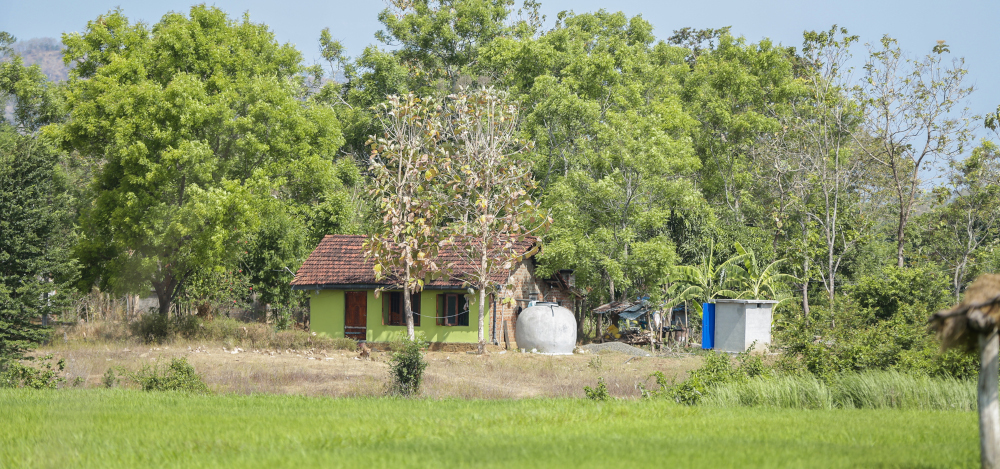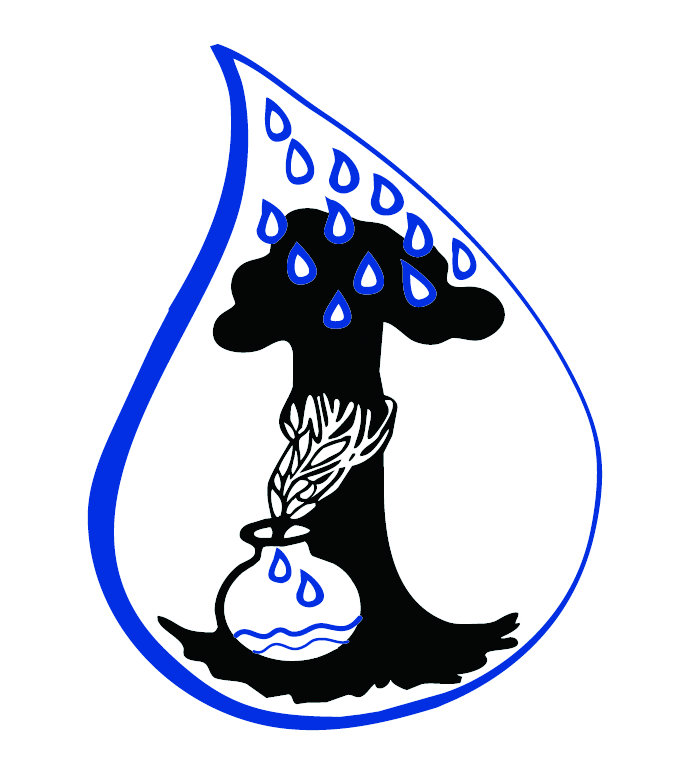Describe your organisation, its vision and mission.
LRWHF was formed with the support of a few individuals from the government, non- governmental and private organisations in an informal way to bring professionals and practitioners together to promote research and foster rainwater harvesting for domestic use in Sri Lanka. In 1997 LRWHF was registered as a non-governmental organisation (NGO) under the Act No. 17 of 1982 and as a social services organisation under the Ministry of Social Services.
During the past few years, the experience gained by LRWHF has made it possible to influence the government and other stakeholders to take on rainwater harvesting as a possible and feasible option for domestic, rural water supply. Members of the LRWHF played an active role in formulating the strategy and policy on rainwater harvesting. A National Policy on Rainwater Harvesting was passed through the Parliament in 2005.
As a pioneering organisation promoting rainwater harvesting in Sri Lanka, LRWHF has been involved in conducting awareness programmes, socio-economic research studies, research and development on new designs, water quality testing, training programmes for masons and other technical staff, providing technical and other information through leaflets, brochures, manuals, articles, radio and television programmes et cetera. Demonstration rainwater harvesting systems were constructed in all the districts of Sri Lanka (some pictures of these in the righthand column).
The aims of LRWHF are:
- To identify existing rainwater harvesting practices in the country.
- Research and develop further techniques for collection of rainwater.
- Promote the application of rainwater for domestic purposes through information, communication and awareness raising.
- Study efficient methods of rainwater harvesting and make recommendations.
- Promote rainwater harvesting for home gardening and domestic level agriculture.
- Promote rainwater harvesting as a viable solution to recharge groundwater.
How long has LRWHF been a GWP partner?
We have been a Partner since 01.11.2010. We decided to join the GWP network to support, share experiences and knowledge for the sustainable management and development of water resources.
What are the benefits of being a GWP Partner?
LRWHF have been able to participate and contribute in many GWP events and publications, and the benefits are to share experiences, knowledge and network with other likeminded organisations.
Please share a challenge facing the management of water resources in your area of expertise.
Sri Lanka has been experiencing frequent droughts and floods, attributed to the effect of climate change. This adversely affects water resources resulting in ground water depletion, water pollution and soil erosion leading to siltation of water sources.
The island receives an average rainfall 2000 mm yearly. Out of the total water received by the island, around 60% escapes to the sea as run-off. Therefore, the simple solution in this case is to increase the retention of water that is received during the rainy periods to be used during the non-rainy periods (rainwater harvesting). Over the last 25 years, traditional rainwater harvesting has been revived, bringing much relief to households.
Due to rapid development in the recent past, coupled with extreme weather patterns, the phenomenon of rainwater flowing into the sea without recharging groundwater – which also causes floods particularly in built-up areas – and the scarcity of water in drought prone areas has been noted with concern. The challenge of supplying adequate water and disposal of its excess g to the citizens in both rural and urban areas, all fauna and flora and other living beings, has been identified as one of the most current critical challenges in the country.
Rainwater harvesting has been proposed and supported by the Government through the Policy Paper “National Rainwater Policy and Strategies” of 2005, as an urgent measure to ensure that all communities have adequate water supplies throughout the year and also to ensure that rainwater is used to charge groundwater.
In spite of the favorable policy on rainwater harvesting, enforcement of the recommendations has not been satisfactory, resulting in very few gains in the sector. Recent severe droughts in some parts of the country and the outbreak of chronic kidney disease of unknown etiology (CKDU) in some parts of the country have compelled victims to look for effective solutions.
Are there any special projects or initiatives that you would like more widely known?
With the support of USAID, LRWHF launched a 3-year project to provide safe disaster-resilient drinking water through rainwater harvesting to floods and drought prone areas in 3 districts in the island. The project sought to provide more efficient disaster-resilient water supplies to vulnerable communities, strengthen the capacity of disaster-prone communities and institutionalization of Disaster Risk Reduction (DRR) policies and practices related to flood and drought management.
As a result of this project, safe drinking water was provided to nearly 17,900 people from 391 households, 48 schools and 10 rural hospitals through roof water harvesting units in the 3 districts. It has been reported that during the drought and floods in recent years, the households with rainwater harvesting systems installed were able to cope better.
Rainwater has also been useful as a source of water during the recent COVID-19 pandemic. Beneficiaries have used rainwater mainly for drinking, cooking and handwashing. Overall, in the 3 districts, the main water source for handwashing is rainwater, followed by public and private wells. It was revealed that beneficiaries of the rainwater harvesting systems were better able to cope with water stress than non-beneficiaries during the governmentally imposed lockdown due to COVID-19, since rainwater was accessible at their doorsteps.


